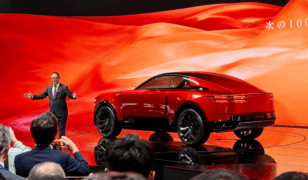Five Things You (Probably) Didn’t Know About a Growing Green Technology. Now Even More Relevant

X-1R Corporation, based in Daytona Beach, Florida, has long been recognized for its high-performance, NASA-origin “Certified Space Technology” lubricants. But in recent years, its green-tech credentials have gone well beyond just greasing machinery the company continues to innovate in clean fuel additives that help reduce emissions and improve fuel economy in heavy-duty diesel fleets.
Here is an updated look at their technology plus five surprising things you might not know (or that have evolved since earlier reports):
- The green fuel additive at the heart of X-1R’s diesel solution remains polymer-based — but it’s been refined.
X-1R’s clean-fuel technology is still built around a very high molecular weight polymer (PIB). This isn’t a simple detergent it works by altering the fuel’s rheological properties (i.e., how it flows). By making the diesel more “viscoelastic,” the additive improves spray patterns in the injector: leading to more uniform droplet sizes, better penetration, reduced wall-wetting, and fewer problematic satellite droplets. The result? More complete and efficient combustion, which helps reduce unburned hydrocarbons, CO, NOₓ, and even particulate matter.
- It’s not just lab-tested; the additive has real-world and regulatory cred.
In addition to earlier field studies (like the Sysco Intermountain fleet), X-1R’s additive has strong support from third-party testing:
- The polymer technology has been tested at Olson-Ecologic Engine Test Laboratories.
- It’s approved in Texas under the TxLED program (a low-emission diesel incentive).
- It’s also CARB-approved (California Air Resources Board) for reducing emissions (NOₓ / PM) in off-road heavy-duty diesel engines.
Moreover, X-1R continues to emphasize that its additive won’t void OEM engine warranties.

- Newer X-1R products bring multi-functional “5-in-1” clean-fuel treatments.
Since the earlier studies, X-1R has expanded its clean-fuel portfolio. For instance, their 5-in-1 Diesel Decarboniser is now formulated to address modern, stricter Tier 4 diesel engines.
Key benefits of the 5-in-1 formula:
- Removes carbon and ash deposits from the combustion chamber and injectors.
- Conditions the fuel and helps eliminate moisture.
- Boosts cetane (improving ignition quality).
- Reduces emissions and helps maintain fuel system cleanliness.
X-1R’s engineering bulletins reveal that this product line was updated in 2021–2022 to better match newer engine demands (e.g., water stabilizing, improved detergency).
- Beyond fuel: X-1R lubricants still offer strong engine-protection benefits with environmental upside.
While their fuel-additive business is pushing green, X-1R has not dropped its core strength: lubrication and metal treatment.
- Their Engine Treatment Concentrate helps reduce friction, wear, and operating temperature and can increase engine life, horsepower, and fuel economy.
- In lab tests (like Falex and four-ball wear tests), X-1R has demonstrated up to 47% reduction in wear on metal surfaces.
- According to its own FAQ, the treatment is non-hazardous and compatible with most synthetic and mineral-based oils and safe with OEM warranties.
These lubricants indirectly support environmental goals by reducing friction losses (hence fuel consumption) and extending engine life (reducing waste).
- Updated emissions and operational benefits (beyond early fleet studies)
While the original Sysco Intermountain study demonstrated 12% better fuel efficiency and ~38% NOₓ reduction, more recent insights and product developments suggest even broader benefits in modern applications:
- Because the additive helps lower combustion gas temperatures, it reduces thermal stress and potentially lowers NOₓ formation.
- The detergent and water-stabilizing aspects of the new 5-in-1 formulation help prevent injector fouling, carbon buildup, and moisture-related degradation which means more stable performance over time.
- For fleets, this can translate into lower maintenance costs (fewer regenerations, less downtime), better longevity, and sustained emissions reductions.
As diesel engines continue to evolve with stricter emissions standards (e.g., Tier 4) and focus on longevity fuel-additive technologies like X-1R’s are increasingly relevant. Clean-fuel strategies are now a critical part of net-zero transitions, especially for heavy transport fleets. Additives that improve combustion efficiency help reduce CO₂, NOₓ, and particulate emissions.
With X-1R’s mature lab validation, regulatory approvals (like CARB), and real-world fleet use, their technology is not just “green promise” it’s a proven tool for reducing environmental impact and cutting operating costs.
X-1R’s core clean fuel technology remains a polymer-based additive that improves atomization and combustion, reducing emissions and boosting fuel efficiency. New product lines like the 5-in-1 Diesel Decarboniser provide multi-pronged benefits removing deposits, stabilizing moisture, improving cetane, and more.
Lubricants and engine treatments from X-1R continue to reduce wear, lower friction, and support environmental goals by extending engine life and reducing fuel wasted through inefficiency. The company combines strong laboratory validation, regulatory approval, and real-world performance, making it one of the more credible players in green fuel technology today.





